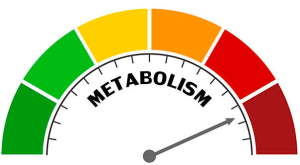
Caffeine Consumption: Benefits, Risks & What Science Says.

Caffeine is one of the most widely consumed psychoactive substances in the world. Found naturally in coffee, tea, and cacao and added to energy drinks and some medications, coffee has become a staple in many people’s daily routines. Whether it's a morning cup of coffee, an afternoon energy drink, or even a pre-workout supplement, caffeine is often the go-to solution for combating fatigue and increasing alertness.
Despite its widespread use, the question remains: is coffee consumption beneficial, harmful, or somewhere in between? Research over the past few decades has explored caffeine’s complex effects on the human body. This article dives into the science behind caffeine, examining its potential benefits, associated risks, and what current research suggests about long-term consumption.
What Is Caffeine?

Caffeine is a natural stimulant that primarily affects the central nervous system. It works by blocking the action of adenosine, a neurotransmitter responsible for promoting sleep. When adenosine is blocked, neurons in the brain fire more rapidly, and the body releases more dopamine and norepinephrine, leading to heightened alertness and reduced fatigue.
Coffee is quickly absorbed into the bloodstream after ingestion and reaches peak levels in the blood within 30 to 60 minutes. Its half-life—how long it takes for half the substance to leave your body—ranges from three to five hours in most people.
How to Start a Fitness Routine You’ll Stick With.
Top 5 Benefits of Caffeine

1. Enhanced Mental Alertness and Cognitive Function

One of the most well-known benefits of caffeine is its ability to improve focus, attention, and mental clarity. Research indicates that even low to moderate doses of caffeine can improve cognitive performance, particularly in tasks that require vigilance, reaction time, and sustained attention.
In a study published in Psychopharmacology, participants who consumed coffee showed significantly better performance on attention-based tasks compared to those who received a placebo.
2. Improved Physical Performance

Caffeine is a popular ingredient in many sports and energy supplements, and for good reason. It has been shown to increase adrenaline levels, improve endurance, and decrease perceived effort during exercise.
According to a meta-analysis in the Journal of the International Society of Sports Nutrition, coffee can improve physical performance by 2–16%, depending on the type and intensity of the exercise.
What Is Prostate Cancer? A Complete Guide to Prevention and Awareness.
3. Fat-Burning and Metabolic Boost

Caffeine can temporarily boost the metabolic rate and increase fat oxidation, making it a common ingredient in weight-loss supplements. It stimulates the nervous system, signaling the body to break down fat cells and use them for energy.
While the effects may diminish over time with regular use, studies suggest that coffee may help support short-term weight loss and improve metabolic rate.
4. Reduced Risk of Certain Diseases

Long-term caffeine consumption has been linked to a reduced risk of several chronic diseases:
Parkinson’s Disease:
Multiple studies suggest that regular coffee intake is associated with a lower risk of developing Parkinson’s disease.
Type 2 Diabetes:
Epidemiological research indicates that coffee drinkers have a lower incidence of type 2 diabetes, possibly due to caffeine’s effects on insulin sensitivity.
Liver Health:
Coffee appears to have protective effects on the liver. Regular coffee consumption is linked to a lower risk of liver fibrosis, cirrhosis, and liver cancer.
5. Mood and Mental Health Support

Caffeine can have mild antidepressant effects by increasing the availability of neurotransmitters like dopamine and serotonin. Some studies suggest a lower risk of depression and suicide in people who regularly consume caffeinated beverages.
5 Potential Damages of Caffeine

Prostate Health After 40: What Every Man Needs to Know
While coffee has many potential benefits, excessive consumption or sensitivity to coffee can lead to negative outcomes. Let’s explore some of the drawbacks associated with coffee.
1. Sleep Disturbances

Caffeine can significantly disrupt sleep patterns, particularly if consumed later in the day. It can reduce total sleep time, increase the time it takes to fall asleep, and lower the quality of deep sleep.
Even individuals who claim coffee doesn't affect them may experience less restful sleep, as shown in polysomnographic studies that measure brain wave activity during sleep cycles.
2. Anxiety and Jitters

High doses of coffee can lead to increased anxiety, restlessness, and heart palpitations. For individuals with anxiety disorders, coffee can exacerbate symptoms and trigger panic attacks.
The DSM-5 (Diagnostic and Statistical Manual of Mental Disorders) even includes "Caffeine-Induced Anxiety Disorder" as a diagnosable condition, highlighting the potential mental health impacts of excessive intake.
3. Dependence and Withdrawal

Regular coffee consumption can lead to dependence, and suddenly stopping intake may result in withdrawal symptoms such as headaches, irritability, fatigue, and difficulty concentrating. These symptoms typically begin 12–24 hours after cessation and can last up to a week.
Although coffee dependence isn’t as severe as with other substances, it can still interfere with daily functioning and mood.
Don’t Let the Heat Beat You: How to Prevent Heat Stroke.
4. Digestive Issues and Heartburn

Caffeine increases acid production in the stomach, which can contribute to gastroesophageal reflux disease (GERD) or heartburn in sensitive individuals. Some people also experience stomach upset, especially when consuming coffee on an empty stomach.
5. Impact on Blood Pressure and Heart Health

Caffeine can cause a short-term spike in blood pressure, particularly in people who don’t consume it regularly. For most healthy adults, moderate coffee consumption doesn't significantly increase the risk of heart disease, but those with hypertension should monitor their intake carefully.
Long-term studies are mixed, with some showing no harmful cardiovascular effects and others suggesting caution, particularly with high doses.
How Much Caffeine Is Safe?

The U.S. Food and Drug Administration (FDA) considers up to 400 milligrams of coffee per day (about four 8-ounce cups of coffee) to be safe for most healthy adults. However, individual tolerance can vary significantly based on genetics, body weight, and overall health.
Here’s a rough idea of how much coffee is in common products:
- Brewed coffee (8 oz): 80–100 mg
- Black tea (8 oz): 30–50 mg
- Energy drink (8 oz): 80–150 mg
- Soda (12 oz): 30–50 mg
- Dark chocolate (1 oz): 12–25 mg
Pregnant women, individuals with heart conditions, and those with anxiety disorders may need to consume less or avoid coffee altogether.
Superfoods: What Are They, and Do You Need Them?
Caffeine Sensitivity and Genetics

Not everyone reacts to coffee the same way. Genetic variations can influence how quickly a person metabolizes coffee and how strongly it affects their body.
People with a variant of the CYP1A2 gene metabolize caffeine more slowly, making them more susceptible to side effects like anxiety and insomnia. Some genetic testing services offer reports that reveal caffeine sensitivity, helping individuals make more informed choices.
The Bottom Line: What Does the Research Say?

Research on caffeine is extensive, and while many benefits are well-supported, potential risks shouldn’t be overlooked. Most experts agree that moderate coffee consumption is safe and may offer health benefits for many people.
Key Takeaways:
- Caffeine can enhance cognitive and physical performance, boost metabolism, and reduce the risk of certain diseases.
- Too much coffee can lead to sleep problems, anxiety, digestive issues, and dependence.
- Genetic differences influence how individuals respond to coffee.
- Moderation is key—up to 400 mg per day is generally considered safe.
Ultimately, caffeine is a double-edged sword. When used wisely, it can be a helpful tool for energy, focus, and even disease prevention. However, overuse or sensitivity to coffee can result in negative physical and mental health effects.
As with many things in life, the best approach to coffee consumption is balance and awareness. Listen to your body, monitor your intake, and consult a healthcare provider if you experience persistent side effects.
Caffeine has been an integral part of human culture for centuries, and its role in modern life is unlikely to wane. With growing research and a better understanding of its effects, we can make more informed choices about how to integrate coffee into our lives in a way that supports, rather than undermines, our health and well-being.
Read More Articles
Instagram Twitter Facebook LinkedIn Quora Google News
Our Other Engagements:

 https://livewithgreen.com/caffeine-benefits-risks-research-facts/
https://livewithgreen.com/caffeine-benefits-risks-research-facts/
.jpg)